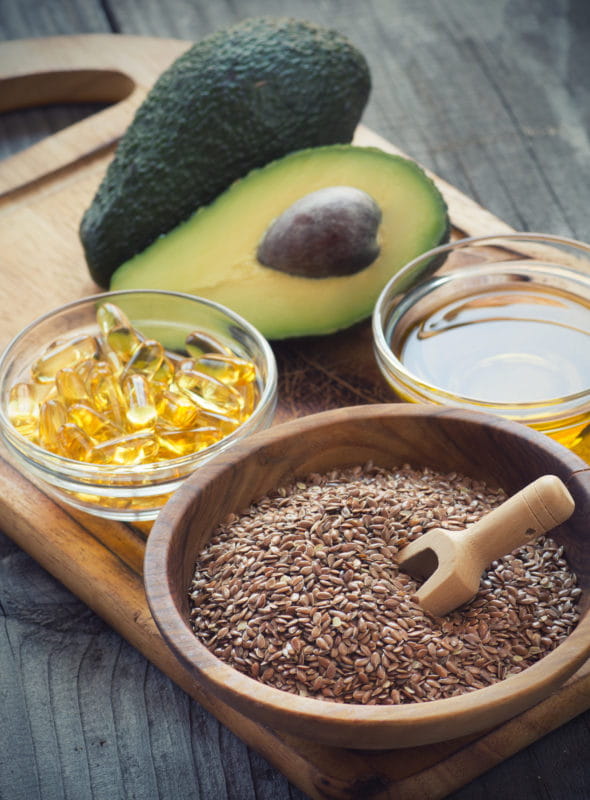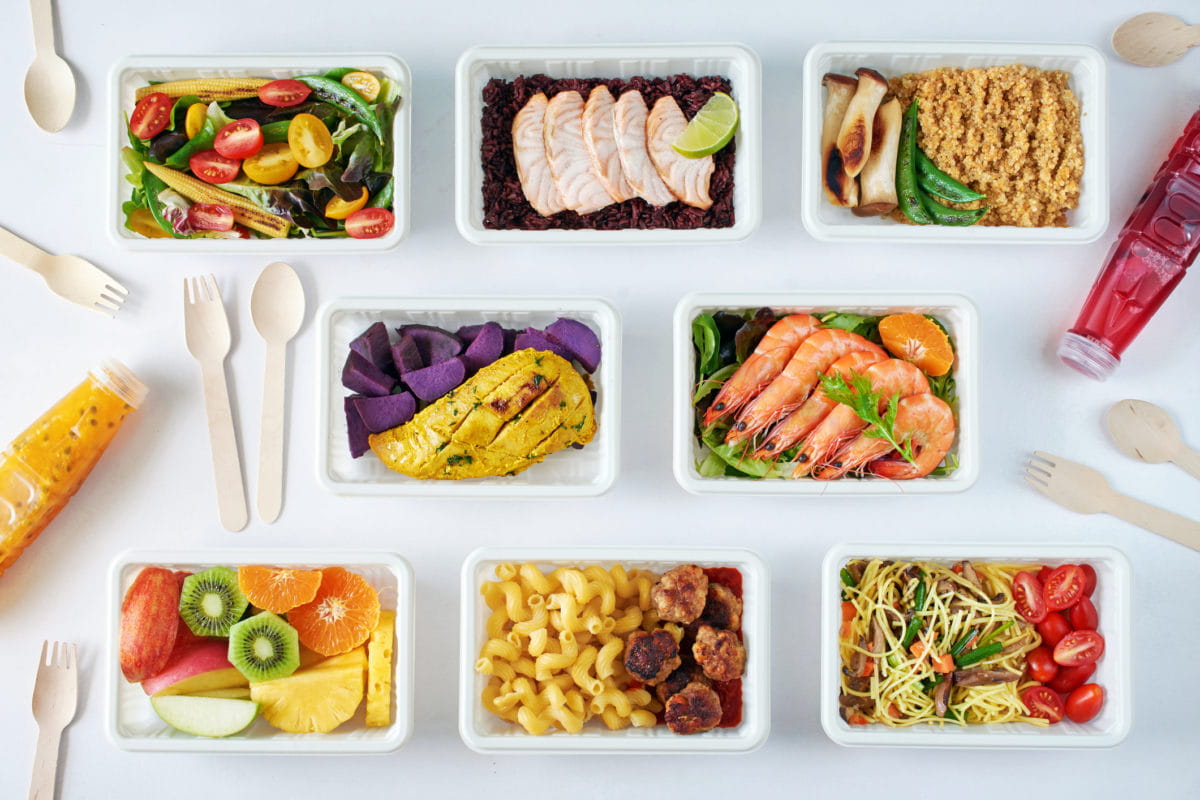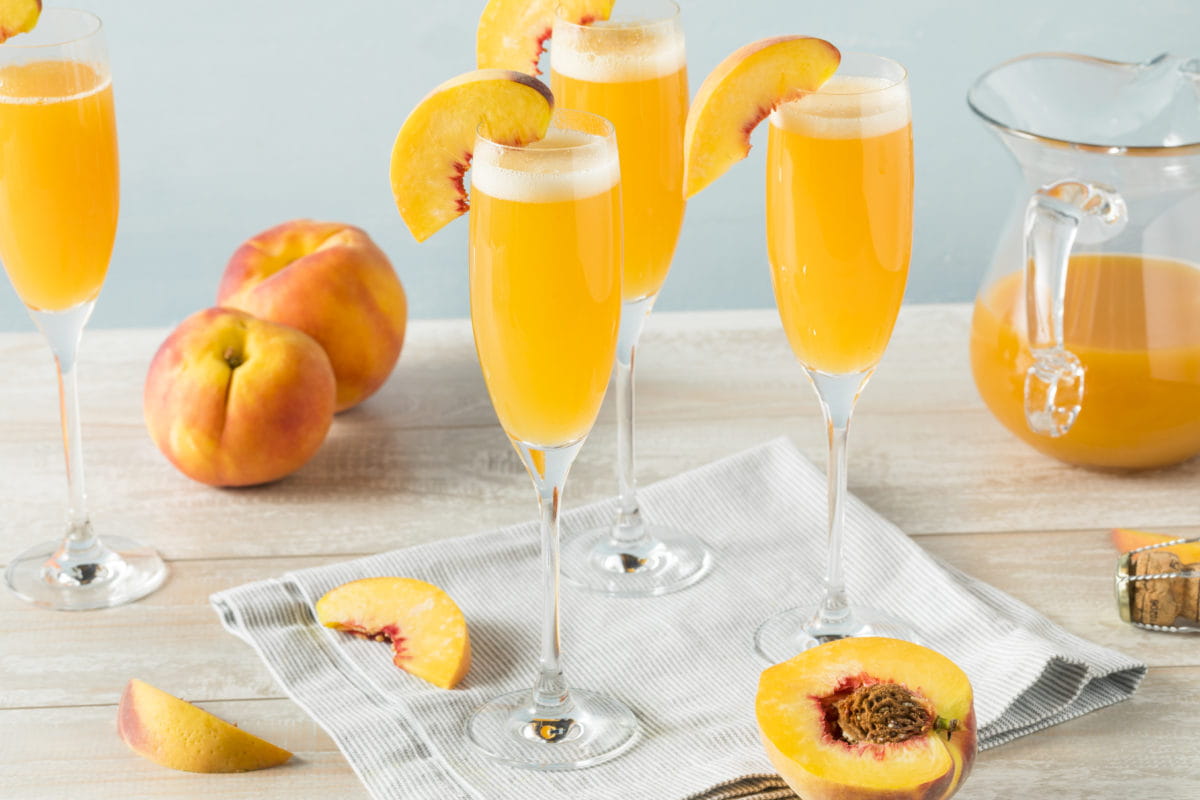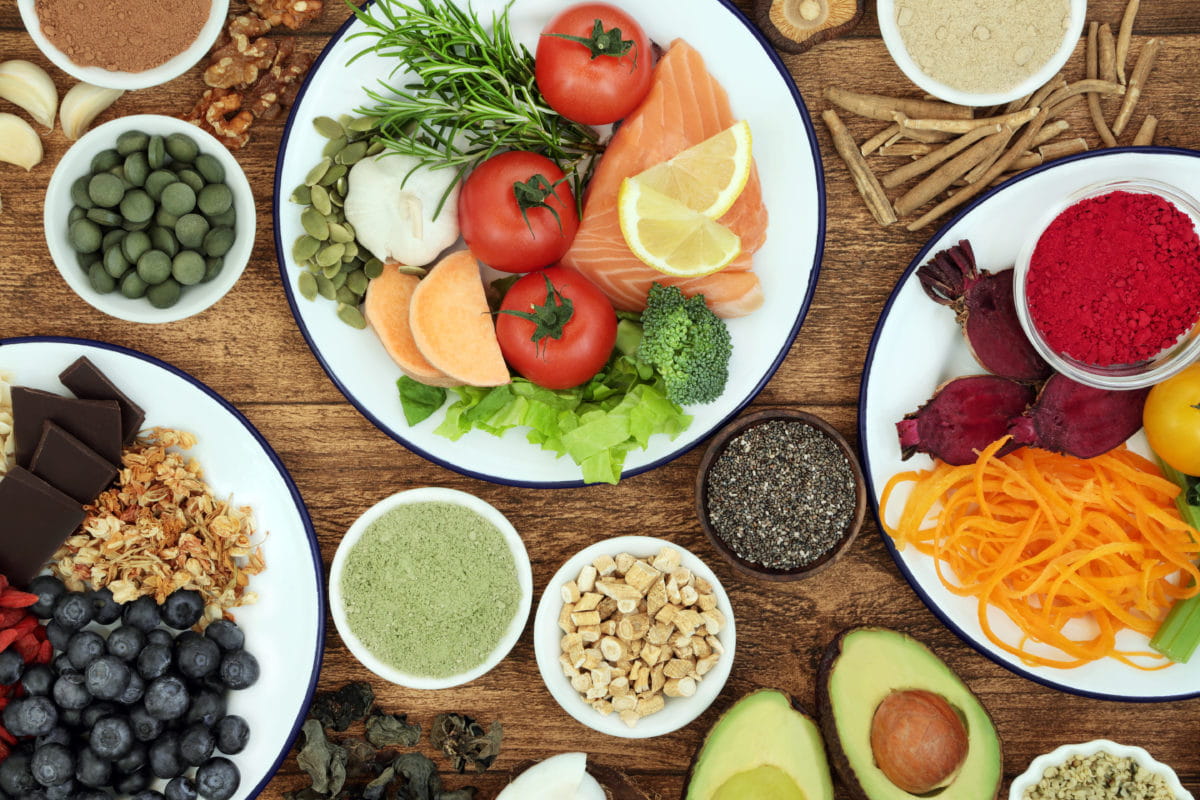Trend Insight: Whole Self Health
January 9, 2020
Click Here for the full report!
Holistic health may seem like a newer concept among today’s mainstream consumers, but it’s actually a notion that extends back to ancient medicine. Today’s consumers have a greater belief in the connection between food overall wellness. Food is medicine, whether consumed as fuel, chosen for a specific wellness goal or as a way to lift spirits and engage with others. How are holistic self-health and self-care defined? It’s a movement with real implications for every segment of food and beverage, and real opportunity. Read on to see why the whole is indeed greater than the sum of the parts.

As its name implies, holistic health is about entirety and the best possible functioning of the human body, mind and spirit. The World Health Organization touches on this mindset, defining “health” as a state of complete physical, mental and social well-being — and not just the absence of disease or infirmity.
With this focus, holistic health encompasses diet and nutrition – and with it, functional ingredients – along with other steps involved in better living, including fitness, spirituality and lifestyle choices for greater sustainability and social responsibility. The emphasis on instant results gives way to bigger picture, longer-term practices and preferences, from meditation to magnesium-rich foods.
In the last two years mentions of “holistic” +”health/wellness” has increased 148%. There are 3.5 mentions per minute, with 92% positivity.
While holistic health is about the whole versus the part, the notion of individuality is actually at its core: the health and wellness of body and spirit are unique to each person. It also relates to the greater environment, as concerns about the impact of climate change and food and package waste mount.
Each generation has and shapes their distinct way of approaching health. At the beginning of a new decade, these ‘20s may not be roaring like the last century but are soaring in terms of the lofty approach to pursuing holistic health among many generations.
It’s Okay, Boomer: As Baby Boomers continue to move into their senior years, they have a strong interest in how diet relates to health, seeking out functional foods and personalized nutrition solutions.
Like, Totally: Generation X, sandwiched between buzz-about Boomers and Millennials, tend to zero in on emotional well-being. About 55% of those in this demographic say they are taking steps to improve their mental health, including consuming higher amounts of natural and organic foods and reducing their intake of meat, alcohol and caffeine.
Millennials, Myself and I: They get a lot of attention for their interest in self-care and self-health and it’s true; 54% of Millennials say they focus on increasing their happiness. They are also interested in mental and physical well-being that includes the consumption of foods that fall under the healthy indulgence umbrella and that can be enjoyed in ethical, socially responsible way.
Fountains of Youth: It might be because of their innate vigor, but younger consumers in Generation Z (currently age 22 and younger) say they like to improve their health by being physically active and seek out food that promote that active lifestyles, including protein-rich items.
“You are what you eat” may be an old term, but it’s arguably more apt now than ever, as people consume food and drink beverages for sustenance as much as a way to improve their entire health.
Form Follows Function: Again, the idea of functional ingredients is not new, evident in the diets of those in China several millennia ago and in the U.S. a few decades ago (remember oat bran?), but the broader use of functional ingredients and the way they are used and marketed in various products has taken on greater visibility and importance among today’s consumers. Within the past year alone, there has been a 23% increase in the number of people looking for well-being functions from their food and drink.
There is no shortage of ingredients in foods and beverages said to promote physical health, with benefits for different parts of the body that work together in synergy.
Gut Feeling: Foods rich in probiotics, like fermented yogurt, kefir, kimchi and kombucha, and prebiotics such as chicory root and microalgae are touted for better digestive health but can also help reduce stress.
Joint Proposition: Foods with anti-inflammatory properties, including sweet potatoes, pumpkin and mangos and seasonings like turmeric, can ease joint pain and thereby improve health.
The Hard Truth: Milk has long been promoted for building strong bones, and the nutrients in dairy products such as milk, yogurt and cheese, do aid in bone health. Other foods rich in calcium, magnesium, potassium and proteins also help with this, including sardines, dark leafy greens like spinach and collard greens, and recently-trending bone broth.
Huel Bar: Bringing the nutrition bar to the next level, this snack contains a balance of protein, carbohydrates, essential fats, phytonutrients and 27 essential vitamins and minerals. Available in Chocolate and Salted Carmel.
Health-Ade Kombucha, with six new flavors, is a fermented beverage that’s also Certified Organic, non-GMO, raw and Kosher. Varieties include Cherry Berry, made with elderberry, hibiscus and sweet cherry.

We’ve discussed this in depth lately. The expansion of brain-enhancing foods is rooted in findings that link various ingredients to improved mood, focus, clarity and other brain functions. At a time of high anxiety, some foods are touted for their stress-relief properties.
Noo and Improved: Nootropics enhance brain functions such as intelligence, cognition and memory and can be found in foodstuffs like L-Theanine in black and green tea, Panax ginseng and dark chocolate, among others.
Omega is Alpha: Expect to hear more about brain boosting omega-3s fatty acids in foods like cold-water fish and seaweed, as they have been shown to promote brain health in younger kids and guard against the effect of anxiety and depression in adults.
Apt Adaptogens: Adaptogens like ginseng, ashwagandha, maca root and reishi are said to lower stress and alleviate fatigue and as such, are part of eating for holistic health.
Power Move: Energy-boosting foods and drinks, like a shot of wheatgrass juice or some superfood spirulina, can help improve overall well-being and health by lifting mood and exertion.
Neuro Sonic, part of the Neuro drink line that includes drinks for other health functions, is a lightly carbonated beverage developed to increase energy based on a ratio of caffeine to L-Theanine found in green tea.
Remedy Organics Cacao Essentials Plant-Based Drink contains the adaptogen ashwagandha and is also made with almond milk, hemp seeds, antioxidant-rich cacao and energy-promoting maca
Chicken Soup is Exhibit A: Foods and beverages can help ward off illness or lessen the effects of ailments like the common cold. In addition to classics like chicken soup and orange juice, other ingredients are coming to the fore as people fight off sickness, such as elderberries, bok choy and peppermint, to name a few.
Source Naturals Wellness Fizz Natural Berry Flavor Immune System Dietary Supplements are touted as an immune-building preventive supplement, and contain elderberry.
As consumers choose foods with functional ingredients added for specific health benefits for body, mind or both, some people are also avoiding other foods and ingredients viewed as detrimental to holistic health. It’s still an overall balance – less a shift like the fat-free or sugar free movement a decade or two ago – but there are some replacements or reductions going on.
That’s (not) the Spirit: More than half (54%) of adults between the ages of 18 and 34 are limiting or reducing their alcohol intake, underscoring the holistic approach to health. Mocktails are hot and probably will continue to be, as much of this alcohol free or reduced alcohol movement is being driven by younger consumers. See our report on the Mocktail Movement here.
Ceder’s Classic Distilled Non-Alcoholic Alt-Gin, available in the UK, is made in small batches, blended with pure Swedish water and is free of alcohol.
The Vida Local Non-Alcoholic Margarita from Mocktail Beverages USA comes in a package with four bottles and is also touted for having half the calories and for being free of artificial colors, flavors, preservatives, GMO, gluten and high corn fructose corn syrup.
The choice of limiting alcohol or other items is ultimately a personal one, and that’s a hallmark of holistic health. Personalization is part and parcel of this approach, something that will be fueled as consumers get more insights and information on their personal health that can help them adapt their eating and drinking habits to meet their needs and demands.
As a result, brands will be continuing to develop more products and those that can be tailored for specific needs or goals.
The entirety of the holistic health concept means that as humans, we aren’t always “good.” People still enjoy great-tasting foods and drinks, which is why permissible indulgence is just as much part of self-health and self-care as better-for-you functional ingredients. It’s why decadent milkshakes are trending on Instagram just as much as plant-based proteins or brain-boosting smoothies.
Double Up: There can be some ingredients that overlap with health and self-care. The veritable explosion of cannabidiol-infused products is one example of that, in that foods and drinks with CBD can elevate mood and provide other health-related functions.
Easy Does It: Another way to pursue health and happiness is by not stressing about the foods and drinks that offer holistic benefits. After all, stress defeats the point of body-and-mind health. To that end, food and beverage products aimed at those interested in holistic self-health and self-care are (and will be) developed with convenience in mind, from easy yet sustainable packaging to ready-to-eat or ready-to-prepare formats.
Halo Top Monster Cookie Ice Cream has 676 calories and some permissible indulgence with ice cream swirled with peanut butter and chocolate chip cookies with sugar and sweeteners.
There is no food or beverage segment or brand that will be left unaffected by consumers’ move to whole self health. Indulgence, clean label, brain health, performance nutrition, alcohol – you name it, it’s part of this. How do you capitalize on the opportunity, and overcome the challenges this may present? Our advice? Become one with your consumer, and make no assumptions. What is indulgence frivolity to some may be a moment of self-care to the next. Every segment of consumer is moving towards holistic health in some way or another. If you inspire confidence in your consumer that your product fits into their lifestyle, the sky’s the limit. And most importantly, remember that taste matters. It is consistently the most important driver for purchase.
Click here for the full report!
What does true partnership look like? You deserve a flavor partner ready to turn these trends into the tangible.
Let FONA’s market insight and research experts get to work for you. Translate these trends into bold new ideas for your brand. Increase market share and get to your “what’s next.” Our technical flavor and product development experts are also at your service to help meet the labeling and flavor profile needs for your products to capitalize on this consumer trend. Let’s mesh the complexities of flavor with your brand development, technical requirements and regulatory needs to deliver a complete taste solution.
From concept to manufacturing, we’re here for you — every step of the way. Contact our sales service department at 630.578.8600 to request a flavor sample or chat us up at /contact-fona/
Sources in full report
Holistic health may seem like a newer concept among today’s mainstream consumers, but it’s actually a notion that extends back to ancient medicine. Today’s consumers have a greater belief in the connection between food overall wellness. Food is medicine, whether consumed as fuel, chosen for a specific wellness goal or as a way to lift spirits and engage with others. How are holistic self-health and self-care defined? It’s a movement with real implications for every segment of food and beverage, and real opportunity. Read on to see why the whole is indeed greater than the sum of the parts.

Be Best: Whole Self Health
“A holistic approach is becoming a key motivator of consumer behavior, underpinned by convenience, transparency, and value.” -Mintel, 2030 Trends
77% of adults in the U.S. say they are actively trying to improve their health in some way. - Lightspeed/Mintel, 2019
As its name implies, holistic health is about entirety and the best possible functioning of the human body, mind and spirit. The World Health Organization touches on this mindset, defining “health” as a state of complete physical, mental and social well-being — and not just the absence of disease or infirmity.
With this focus, holistic health encompasses diet and nutrition – and with it, functional ingredients – along with other steps involved in better living, including fitness, spirituality and lifestyle choices for greater sustainability and social responsibility. The emphasis on instant results gives way to bigger picture, longer-term practices and preferences, from meditation to magnesium-rich foods.
Social Listening
In the last two years mentions of “holistic” +”health/wellness” has increased 148%. There are 3.5 mentions per minute, with 92% positivity.
Me and We
While holistic health is about the whole versus the part, the notion of individuality is actually at its core: the health and wellness of body and spirit are unique to each person. It also relates to the greater environment, as concerns about the impact of climate change and food and package waste mount.
Generation Health
Each generation has and shapes their distinct way of approaching health. At the beginning of a new decade, these ‘20s may not be roaring like the last century but are soaring in terms of the lofty approach to pursuing holistic health among many generations.
It’s Okay, Boomer: As Baby Boomers continue to move into their senior years, they have a strong interest in how diet relates to health, seeking out functional foods and personalized nutrition solutions.
Like, Totally: Generation X, sandwiched between buzz-about Boomers and Millennials, tend to zero in on emotional well-being. About 55% of those in this demographic say they are taking steps to improve their mental health, including consuming higher amounts of natural and organic foods and reducing their intake of meat, alcohol and caffeine.
Millennials, Myself and I: They get a lot of attention for their interest in self-care and self-health and it’s true; 54% of Millennials say they focus on increasing their happiness. They are also interested in mental and physical well-being that includes the consumption of foods that fall under the healthy indulgence umbrella and that can be enjoyed in ethical, socially responsible way.
Fountains of Youth: It might be because of their innate vigor, but younger consumers in Generation Z (currently age 22 and younger) say they like to improve their health by being physically active and seek out food that promote that active lifestyles, including protein-rich items.
Holistic Eating for Self-Health and Self-Care
“You are what you eat” may be an old term, but it’s arguably more apt now than ever, as people consume food and drink beverages for sustenance as much as a way to improve their entire health.
Form Follows Function: Again, the idea of functional ingredients is not new, evident in the diets of those in China several millennia ago and in the U.S. a few decades ago (remember oat bran?), but the broader use of functional ingredients and the way they are used and marketed in various products has taken on greater visibility and importance among today’s consumers. Within the past year alone, there has been a 23% increase in the number of people looking for well-being functions from their food and drink.
“Current wellness and self-care trends are sparking attention in products that support holistic health, highlighting an opportunity for food, drink and supplement producers.” -Mintel, Holistic Health
Body of Thought
“Holistic health is actually an approach to life… With holistic health, people accept responsibility for their own level of well-being and everyday choices are used to take charge of one’s own health.” -American Holiday Health Association
There is no shortage of ingredients in foods and beverages said to promote physical health, with benefits for different parts of the body that work together in synergy.
Gut Feeling: Foods rich in probiotics, like fermented yogurt, kefir, kimchi and kombucha, and prebiotics such as chicory root and microalgae are touted for better digestive health but can also help reduce stress.
Joint Proposition: Foods with anti-inflammatory properties, including sweet potatoes, pumpkin and mangos and seasonings like turmeric, can ease joint pain and thereby improve health.
The Hard Truth: Milk has long been promoted for building strong bones, and the nutrients in dairy products such as milk, yogurt and cheese, do aid in bone health. Other foods rich in calcium, magnesium, potassium and proteins also help with this, including sardines, dark leafy greens like spinach and collard greens, and recently-trending bone broth.
Products of Note:
Huel Bar: Bringing the nutrition bar to the next level, this snack contains a balance of protein, carbohydrates, essential fats, phytonutrients and 27 essential vitamins and minerals. Available in Chocolate and Salted Carmel.
Health-Ade Kombucha, with six new flavors, is a fermented beverage that’s also Certified Organic, non-GMO, raw and Kosher. Varieties include Cherry Berry, made with elderberry, hibiscus and sweet cherry.

Food for Actual Thought
We’ve discussed this in depth lately. The expansion of brain-enhancing foods is rooted in findings that link various ingredients to improved mood, focus, clarity and other brain functions. At a time of high anxiety, some foods are touted for their stress-relief properties.
Noo and Improved: Nootropics enhance brain functions such as intelligence, cognition and memory and can be found in foodstuffs like L-Theanine in black and green tea, Panax ginseng and dark chocolate, among others.
Omega is Alpha: Expect to hear more about brain boosting omega-3s fatty acids in foods like cold-water fish and seaweed, as they have been shown to promote brain health in younger kids and guard against the effect of anxiety and depression in adults.
Apt Adaptogens: Adaptogens like ginseng, ashwagandha, maca root and reishi are said to lower stress and alleviate fatigue and as such, are part of eating for holistic health.
Power Move: Energy-boosting foods and drinks, like a shot of wheatgrass juice or some superfood spirulina, can help improve overall well-being and health by lifting mood and exertion.
Products of Note:
Neuro Sonic, part of the Neuro drink line that includes drinks for other health functions, is a lightly carbonated beverage developed to increase energy based on a ratio of caffeine to L-Theanine found in green tea.
Remedy Organics Cacao Essentials Plant-Based Drink contains the adaptogen ashwagandha and is also made with almond milk, hemp seeds, antioxidant-rich cacao and energy-promoting maca
Under the Weather?
Chicken Soup is Exhibit A: Foods and beverages can help ward off illness or lessen the effects of ailments like the common cold. In addition to classics like chicken soup and orange juice, other ingredients are coming to the fore as people fight off sickness, such as elderberries, bok choy and peppermint, to name a few.
Product of Note:
Source Naturals Wellness Fizz Natural Berry Flavor Immune System Dietary Supplements are touted as an immune-building preventive supplement, and contain elderberry.
Hold the booze, please
As consumers choose foods with functional ingredients added for specific health benefits for body, mind or both, some people are also avoiding other foods and ingredients viewed as detrimental to holistic health. It’s still an overall balance – less a shift like the fat-free or sugar free movement a decade or two ago – but there are some replacements or reductions going on.
That’s (not) the Spirit: More than half (54%) of adults between the ages of 18 and 34 are limiting or reducing their alcohol intake, underscoring the holistic approach to health. Mocktails are hot and probably will continue to be, as much of this alcohol free or reduced alcohol movement is being driven by younger consumers. See our report on the Mocktail Movement here.
Products of Note:
Ceder’s Classic Distilled Non-Alcoholic Alt-Gin, available in the UK, is made in small batches, blended with pure Swedish water and is free of alcohol.
The Vida Local Non-Alcoholic Margarita from Mocktail Beverages USA comes in a package with four bottles and is also touted for having half the calories and for being free of artificial colors, flavors, preservatives, GMO, gluten and high corn fructose corn syrup.
“Demand for beverages that support physical and emotional health will continue to be a catalyst for innovation. Expect brands to ‘go back to the basics’ by incorporating essential nutrients into beverages as well as novel ingredients suggested to improve relaxation and temperament.” -Imbibe, Trendspotting 2020
It’s Personal
The choice of limiting alcohol or other items is ultimately a personal one, and that’s a hallmark of holistic health. Personalization is part and parcel of this approach, something that will be fueled as consumers get more insights and information on their personal health that can help them adapt their eating and drinking habits to meet their needs and demands.
As a result, brands will be continuing to develop more products and those that can be tailored for specific needs or goals.
Permissible Indulgence
The entirety of the holistic health concept means that as humans, we aren’t always “good.” People still enjoy great-tasting foods and drinks, which is why permissible indulgence is just as much part of self-health and self-care as better-for-you functional ingredients. It’s why decadent milkshakes are trending on Instagram just as much as plant-based proteins or brain-boosting smoothies.
Double Up: There can be some ingredients that overlap with health and self-care. The veritable explosion of cannabidiol-infused products is one example of that, in that foods and drinks with CBD can elevate mood and provide other health-related functions.
Easy Does It: Another way to pursue health and happiness is by not stressing about the foods and drinks that offer holistic benefits. After all, stress defeats the point of body-and-mind health. To that end, food and beverage products aimed at those interested in holistic self-health and self-care are (and will be) developed with convenience in mind, from easy yet sustainable packaging to ready-to-eat or ready-to-prepare formats.
Product of Note:
Halo Top Monster Cookie Ice Cream has 676 calories and some permissible indulgence with ice cream swirled with peanut butter and chocolate chip cookies with sugar and sweeteners.
“The way a company positions its food and tells stories about it can help consumers decide how the food fits into their lifestyle.” -Innova Market Insights, Top Trends for 2020
The Takeaways
There is no food or beverage segment or brand that will be left unaffected by consumers’ move to whole self health. Indulgence, clean label, brain health, performance nutrition, alcohol – you name it, it’s part of this. How do you capitalize on the opportunity, and overcome the challenges this may present? Our advice? Become one with your consumer, and make no assumptions. What is indulgence frivolity to some may be a moment of self-care to the next. Every segment of consumer is moving towards holistic health in some way or another. If you inspire confidence in your consumer that your product fits into their lifestyle, the sky’s the limit. And most importantly, remember that taste matters. It is consistently the most important driver for purchase.
Click here for the full report!
You deserve more. Let’s get started.
What does true partnership look like? You deserve a flavor partner ready to turn these trends into the tangible.
Let FONA’s market insight and research experts get to work for you. Translate these trends into bold new ideas for your brand. Increase market share and get to your “what’s next.” Our technical flavor and product development experts are also at your service to help meet the labeling and flavor profile needs for your products to capitalize on this consumer trend. Let’s mesh the complexities of flavor with your brand development, technical requirements and regulatory needs to deliver a complete taste solution.
From concept to manufacturing, we’re here for you — every step of the way. Contact our sales service department at 630.578.8600 to request a flavor sample or chat us up at /contact-fona/
Sources in full report






